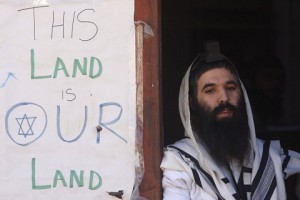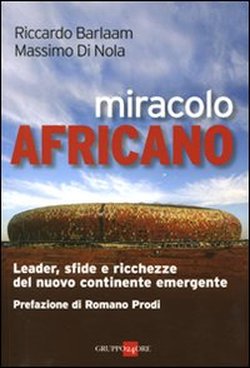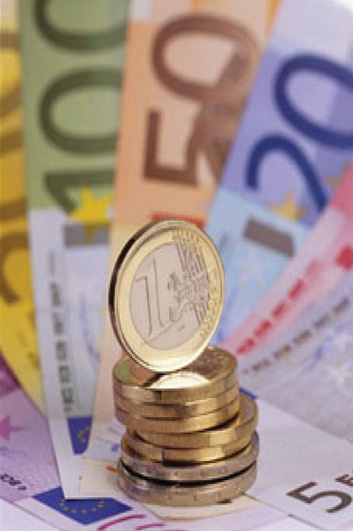Vincenzo Giardina interviews Romano Prodi on Misna site front page; 9 June 2011
“We must cultivate the utopia of inter-African integration,” said former Italian prime minister and president of the EU Commission, Romano Prodi, in relation to his recently published study on behalf of the UN and the African Union (AU) on the effectiveness of peacekeeping missions south of the Sahara.
Next week in Washington, his Foundation for the Collaboration among Peoples is organizing a conference entitled “Africa 53 States – A Union. The new Challenges”. It is the second stage of a process that concludes next year in Addis Abeba, where the AU has its headquarters. From the war in Libya and the division of Sudan, says Prodi, the road is more difficult…
President, the idea of African integration as the sole road to development shall be discussed on June 15 and 16; meanwhile, the continent continues to divide…
“It’s true the continent is dividing. But it’s best to separate the problems. South Sudan’s independence from Khartoum is the conclusion of a very long process and it should not surprise us. At the same time, it is the sign of a continent where, rather than the search for unity, but even just the matter of closer inter-country collaboration is absolutely difficult. In Libya’s case, there are tensions and protests fueled by an authoritarian regime and the deep divisions between Tripolitania e Cyrenaica, which were separate provinces during the Italian colonial period. Moreover, for bad or for good, Muammar Khadafy has been a prolific material contributor to the African Union, which has been left with few means poor despite this help. In the future, the scarcity of financial resources shall create very serious problems for the AU. I have to concede, moreover, that many African states are diffident toward a string Union and they link their contribution to the transparency of accounts or political choices. Such factors make the goal of reaching continental integration focused in the AU and its weak regional organizations, more difficult”.
What Are the ‘New Challenges’ for the Continent?
“We see the difficulties, but let’s not lose faith in the plan to promote cooperation among African countries. It’s the only alternative to a continent from becoming the battlefield between opposing clans and the great powers. Either there is a dialogue that engages Europe, the USA, China and the AU or Beijing’s growing influence will clash with France’s resistance in francophone countries, with the UK in Anglophone countries and in the USA in the countries friendly with the countries of the Gulf of Guinea. Africans shall be so weak that they will only rely on external support, or worse, suffer penetration from the outside. Africa is the largest tank of energies and natural resources of the world soon to reach a population of nine billion inhabitants. Or we oblige the great powers to dialogue among themselves or we shall see an already played out scenario in the XXI century”.
Is there a risk for economic integration exclusive of political collaboration south of the Sahara?
“Economic integration implies political integration. To build regional infrastructure or to create a common market inter-governmental collaboration is necessary. African states remaining separate will be unable to confront the EU, China, or America. Should the former colonial powers adopt divide and rule policies there is no hope for Africa”.
From Ivory Coast to Libya, has the Au failed in its task to ensure peace?
“Of course it has failed! It’s like when we take power away from the UN and then complain that it doesn’t intervene. How can the AU not show its weakness? My suggestions about the transfer of resources for the AU peacekeeping missions were vetoed by France and the UK. We cannot cut an athlete’s legs and complain he doesn’t run. In Africa, when a conflict erupts, we typically use troops from various countries, often badly organized and uncoordinated; financing structures are lacking for the training of peacekeeping contingents”.
How do you evaluate Italy’s policy in the Libyan war? From the Friendship Treaty with Khadafy, we have moved to the promises of “huge sums of momney” to the insurgents in Benghazi.
“I will limit myself to two observations. Before the start of the NATO military intervention the opportunities for a non-conflict solution were not fully explored. Every day, then, I see continuous rolls: fierce faces promptly turn into indecisions or demonstrations of an opening. These contradictory aspects make me anxious”.
There have been rumors that you might play a role as an EU mediator for Libya. Is that a possibility?
“So far nobody has contacted me, not even in an exploratory phase. Then if the ministries of foreign affairs are offering such suggestions…”
While NATO aircraft bomb Tripoli, emerging powers like China, India and Brazil do business.
“India and China chase each other. New Delhi would like to resume the initiative for historic reasons, I think of the heavy presence of Indian migrants south of the Sahara. However, China’s quantitative dimension of activity is far superior as of today. Beijing has no doubt contributed to Africa’s macroeconomic development but not to the redistribution of income, that is to say justice. How much this is because of China or African governments is something to think about”.
And human rights?
“The promotion of human rights must be the fundamental factor of European policy. But when people die from hunger we must understand that there are dramatic needs which we must confront. As president of the EU Commission, I found myself often having to choose whether to cooperate with non-democratic governments. I chose to cooperate; boycotts that often hit those who are tyrannized are not a good policy”.


















